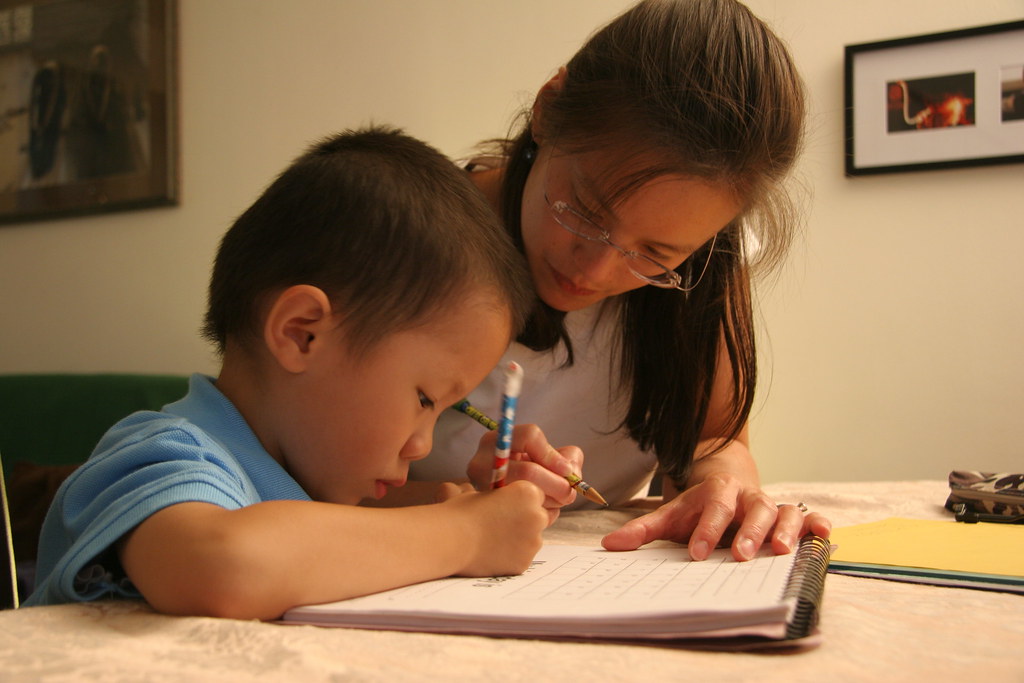But there are many other ways to turn lessons physical. She correctly reads a line in her phonics lesson? She earns 10 seconds to do jumping jacks, skipping, or running across the room. (Believe it or not, she almost always calms down quickly if she know such activities will stop immediately if she doesn't!)
Or the movement can be a part of the lesson. She claps her hands together three times, then four times more, and adds them together. Or a math challenge is written on a card. She computes it correctly. You wad up the card, and she runs as she catches it on the fly.
Or the child is learning to recognize description. Her challenge? To pop up every time she comes across another description in a story. (It might be best to give specific instruction, such as to stand only when she sees descriptions over one specific object or event in the story.)
Or she is learning where certain punctuation marks go, such as quotation marks. You (or someone) reads an unmarked passage, and she throws up her arms (as if exaggerated quotation marks over her head) when she "hears" them.
Okay, obviously you are not going to offer such movement activities all the time. You might already be getting dizzy, just reading this. Many lessons are enjoyable by themselves, and sometimes the child is going to do lessons because, because -- because she needs to, that's all. But on other days...
Try some. Make up your own.
And be prepared for a lot of laughter.
And be prepared for a lot of laughter.
*This is assuming the child is healthy and not restricted physically.
PHOTO CREDIT:
PHOTO CREDIT:


